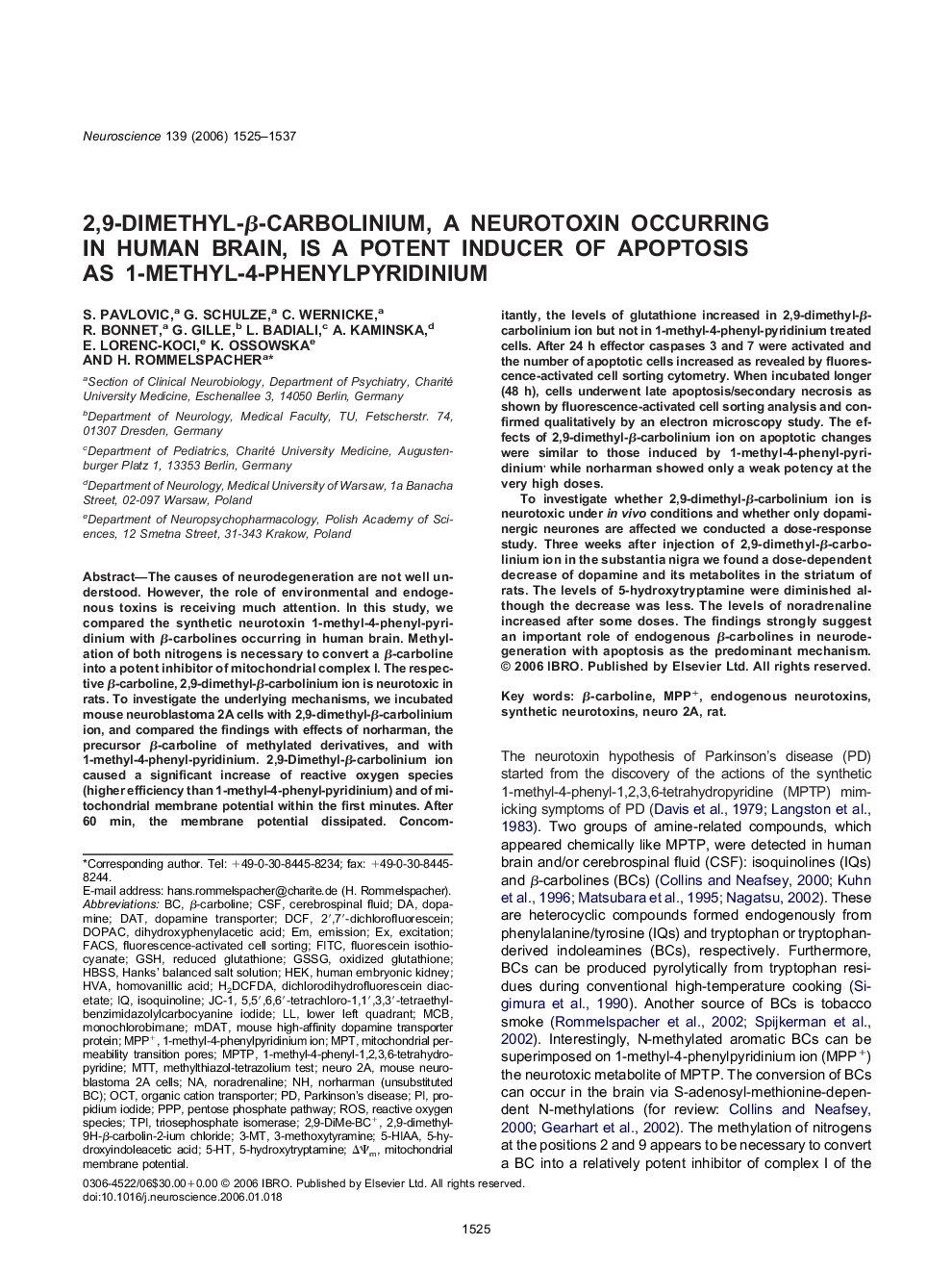| Article ID | Journal | Published Year | Pages | File Type |
|---|---|---|---|---|
| 4341756 | Neuroscience | 2006 | 13 Pages |
The causes of neurodegeneration are not well understood. However, the role of environmental and endogenous toxins is receiving much attention. In this study, we compared the synthetic neurotoxin 1-methyl-4-phenyl-pyridinium with β-carbolines occurring in human brain. Methylation of both nitrogens is necessary to convert a β-carboline into a potent inhibitor of mitochondrial complex I. The respective β-carboline, 2,9-dimethyl-β-carbolinium ion is neurotoxic in rats. To investigate the underlying mechanisms, we incubated mouse neuroblastoma 2A cells with 2,9-dimethyl-β-carbolinium ion, and compared the findings with effects of norharman, the precursor β-carboline of methylated derivatives, and with 1-methyl-4-phenyl-pyridinium. 2,9-Dimethyl-β-carbolinium ion caused a significant increase of reactive oxygen species (higher efficiency than 1-methyl-4-phenyl-pyridinium) and of mitochondrial membrane potential within the first minutes. After 60 min, the membrane potential dissipated. Concomitantly, the levels of glutathione increased in 2,9-dimethyl-β-carbolinium ion but not in 1-methyl-4-phenyl-pyridinium treated cells. After 24 h effector caspases 3 and 7 were activated and the number of apoptotic cells increased as revealed by fluorescence-activated cell sorting cytometry. When incubated longer (48 h), cells underwent late apoptosis/secondary necrosis as shown by fluorescence-activated cell sorting analysis and confirmed qualitatively by an electron microscopy study. The effects of 2,9-dimethyl-β-carbolinium ion on apoptotic changes were similar to those induced by 1-methyl-4-phenyl-pyridinium, while norharman showed only a weak potency at the very high doses.To investigate whether 2,9-dimethyl-β-carbolinium ion is neurotoxic under in vivo conditions and whether only dopaminergic neurones are affected we conducted a dose-response study. Three weeks after injection of 2,9-dimethyl-β-carbolinium ion in the substantia nigra we found a dose-dependent decrease of dopamine and its metabolites in the striatum of rats. The levels of 5-hydroxytryptamine were diminished although the decrease was less. The levels of noradrenaline increased after some doses. The findings strongly suggest an important role of endogenous β-carbolines in neurodegeneration with apoptosis as the predominant mechanism.
